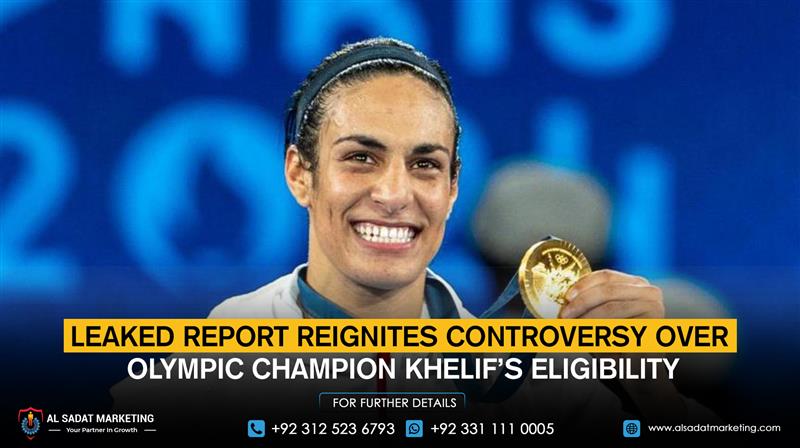Algerian Olympic boxing champion Imane Khelif is once again at the center of a global controversy following the leak of a medical report alleging that she is biologically male. The report, which has reignited debates over gender eligibility in women’s sports, claims the athlete possesses the SRY gene, typically found on the Y chromosome, indicating a male karyotype.
The report, dated March 2023, is said to originate from India’s Dr Lal PathLabs and was shared by journalist Alan Abrahamson of 3 Wire Sports. Although unverified officially, the document has amplified scrutiny around Khelif, who won gold in the women’s boxing category at the 2024 Paris Olympics.
The controversy follows the recent introduction of World Boxing’s “Sex, Age, and Weight” policy in May 2025. The policy mandates genetic testing for athletes aged 18 and above, including PCR testing to detect the SRY gene, as part of efforts to ensure fair and safe competition in women’s combat sports.
Khelif, 25, has been barred from competing in all sanctioned events until she complies with the new regulations, including the upcoming Eindhoven Box Cup. World Boxing has emphasized that these emergency policy changes aim to preserve the integrity of women’s boxing amid growing concerns about safety and fairness.
This is not the first time Khelif has faced gender eligibility issues. In 2023, she was disqualified by the now-dissolved International Boxing Association (IBA), a decision met with resistance by officials, including former IOC President Thomas Bach, who questioned the testing procedures used at the time.
Khelif’s gold medal victory in Paris marked a historic moment for Algeria, making her the first Algerian woman to secure Olympic gold in boxing. The Algerian Olympic Committee has dismissed the latest allegations as “unsubstantiated” and “politically motivated,” defending Khelif as a national icon.
The boxer herself has repeatedly denied the allegations and remains publicly committed to defending her Olympic title at the 2028 Los Angeles Games. Her case has drawn international attention, with commentators and activists taking sides.
British broadcaster Piers Morgan demanded apologies from critics who dismissed concerns about gender fairness in sport, while Olympian Sharron Davies and American activist Riley Gaines voiced strong opposition to Khelif’s participation in women’s boxing.
The situation echoes broader debates about transgender and intersex athlete inclusion in elite women’s sports. Proponents of gender identity rights advocate for inclusion and dignity, while critics raise concerns about biological advantages and competitive fairness.
Khelif is not alone in this spotlight. Taiwanese boxer Lin Yu-ting has also faced scrutiny, having previously been disqualified by the IBA under similar circumstances.
World Boxing maintains that any athlete with unresolved gender certification issues will remain ineligible to compete. As the controversy unfolds, Khelif’s future in professional boxing remains uncertain, reflecting the complex and evolving dialogue around gender, fairness, and the integrity of competitive sport.










